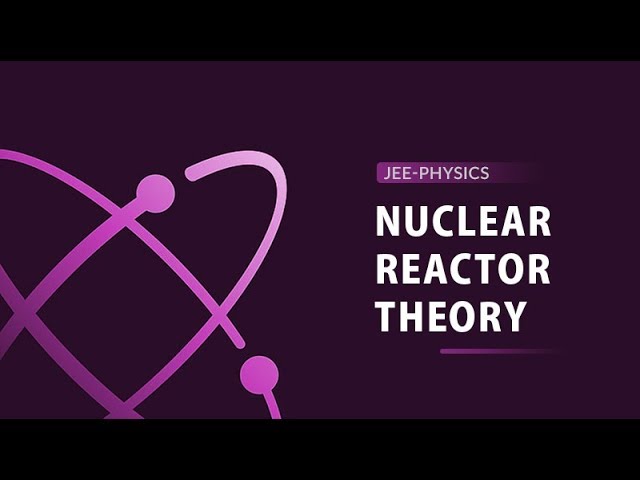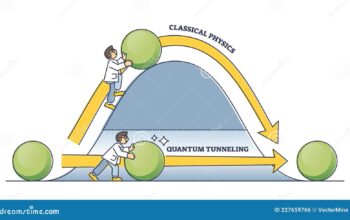Nuclear physics is a fundamental branch of science that delves into the structure and behavior of atomic nuclei. But why does it matter? What makes it an essential area of study in our modern world? In this exploration of nuclear physics, we will unravel its importance and the profound implications it has across various domains, from medical advancements to energy production and even our understanding of the universe itself.
1. The Pillars of Energy Production
At the heart of nuclear physics lies its revolutionary contribution to energy production. The advent of nuclear power has provided a potent alternative to fossil fuels, which are finite and lead to considerable environmental degradation. Nuclear reactors harness the energy released during nuclear fission, a process by which heavy atomic nuclei, such as uranium-235 or plutonium-239, split into lighter nuclei, releasing immense energy in the form of heat. This heat is used to generate steam that turns turbines, ultimately producing electricity.
However, a playful question arises: what happens if we scale this technology beyond current capabilities? Would it lead to unparalleled energy abundance or pose insurmountable risks? The challenge extends further; how can we ensure that this extraordinary power source does not become a double-edged sword?
2. Medical Applications: A Lifesaving Realm
Nuclear physics is instrumental in the field of medicine, particularly in diagnostics and treatment. Techniques such as positron emission tomography (PET) scans and single-photon emission computed tomography (SPECT) employ radioactive isotopes to visualize physiological processes within the body. These imaging techniques have revolutionized early disease detection, enabling prompt and effective treatment interventions.
Beyond diagnostics, radioisotopes are vital for therapeutic applications. For instance, the use of iodine-131 in treating thyroid cancer showcases how nuclear physics transcends the domain of mere theory and becomes a practical tool in healthcare. Nevertheless, this realm raises profound ethical questions: how do we balance advancements in nuclear medicine with the risks of radiation exposure?
3. Advancing Fundamental Research
The significance of nuclear physics is not confined to practical applications; it also facilitates our understanding of the cosmos. Research in high-energy physics, particularly through particle accelerators, probes the fundamental components of matter, revealing the intricate tapestry of the universe. Discoveries such as the Higgs boson have unveiled new dimensions of theoretical physics, prompting questions about the very fabric of reality.
This leads us to ponder another challenge: as we uncover these mysteries, how do we responsibly convey scientific knowledge to the public? The complexities of nuclear physics often elude lay comprehension, which may hinder informed discussions regarding its implications.
4. The Acumen of National Security
Nuclear physics also plays a pivotal role in national security considerations, as nuclear weapons remain a formidable aspect of global politics. Understanding nuclear reactions enables countries to develop deterrent capabilities, but, conversely, it also necessitates stringent measures to prevent proliferation. The ramifications of nuclear technology extend far beyond borders, influencing diplomatic relations and international stability.
A pressing challenge thus emerges: how do nations reconcile the need for security with the aspirations for peaceful nuclear energy? The delicate balance between deterrence and cooperation underscores the necessity of robust international frameworks and treaties.
5. Environmental Considerations
In contemporary discourse, the environmental ramifications of nuclear energy warrant meticulous examination. While nuclear energy emits minimal greenhouse gases compared to fossil fuels, the disposal of radioactive waste remains a contentious issue. The long-lived isotopes produced in nuclear reactors necessitate secure and sustainable waste management strategies.
Can we innovate new methodologies that render nuclear waste harmless? Alternatively, how can we mitigate the risks associated with potential disasters, as witnessed in Chernobyl and Fukushima? The intersection of nuclear physics, environmental sustainability, and public policy presents an intricate puzzle that demands comprehensive solutions.
6. Inspiring the Next Generation
Nuclear physics is not merely a reservoir of knowledge; it serves as a source of inspiration for budding scientists. The marvel of atomic interactions and the prospect of harnessing such forces captivate the imagination. Educational initiatives aimed at demystifying nuclear physics and promoting STEM (Science, Technology, Engineering, and Mathematics) fields are crucial for fostering a scientifically literate society.
However, an underlying challenge persists: how do we ignite an enduring passion for nuclear physics among students in an era dominated by other technological marvels? Engaging curricula, hands-on experiments, and public outreach can bridge the gap between complex theories and tangible understanding.
Conclusion: A Tapestry of Possibilities
In summary, the importance of nuclear physics reverberates through various spheres, from energy production and healthcare to fundamental research and national security. Embracing the opportunities it presents must be accompanied by an acute awareness of the challenges that accompany such power. As we navigate the intricate landscape of nuclear physics, the pertinent questions we pose today will shape the foundations of tomorrow’s innovations. Thus, the journey into the depths of nuclear physics is not merely an academic pursuit—it is a quest that seeks to illuminate the path toward progress and understanding in a rapidly changing world.












